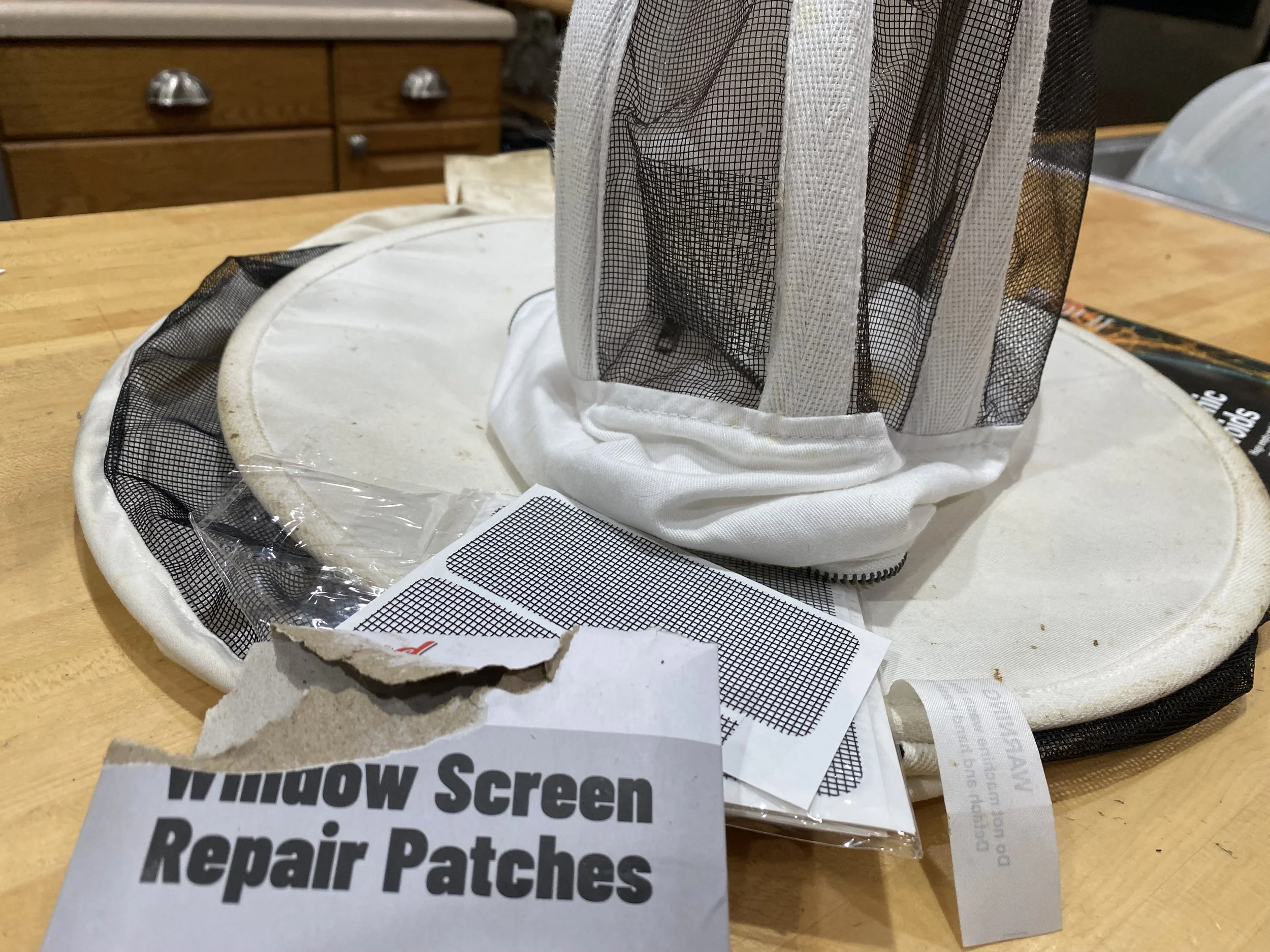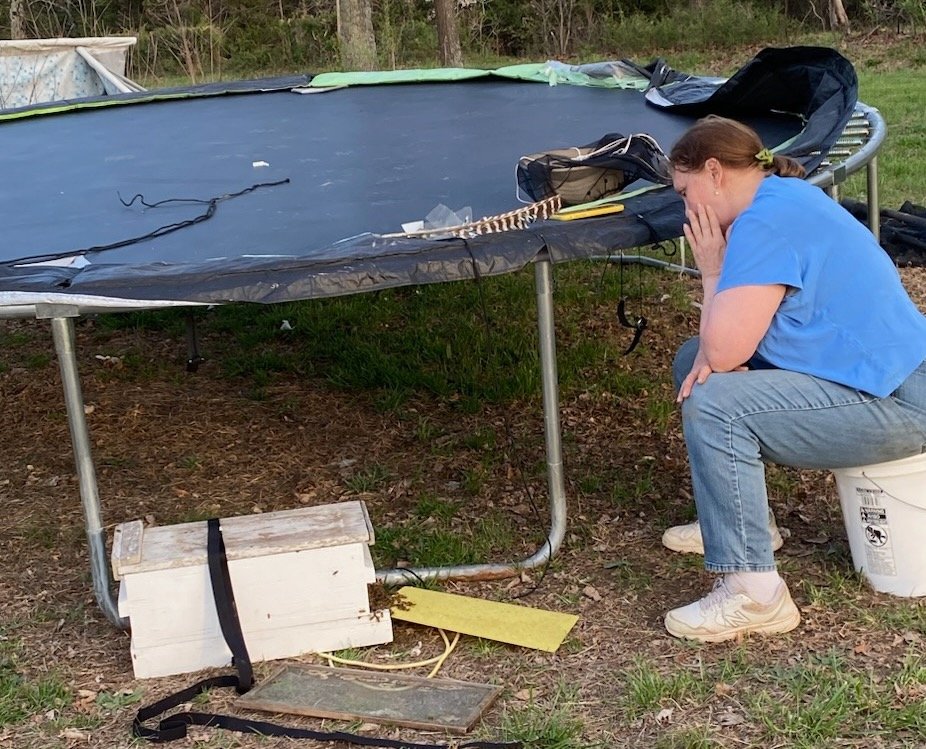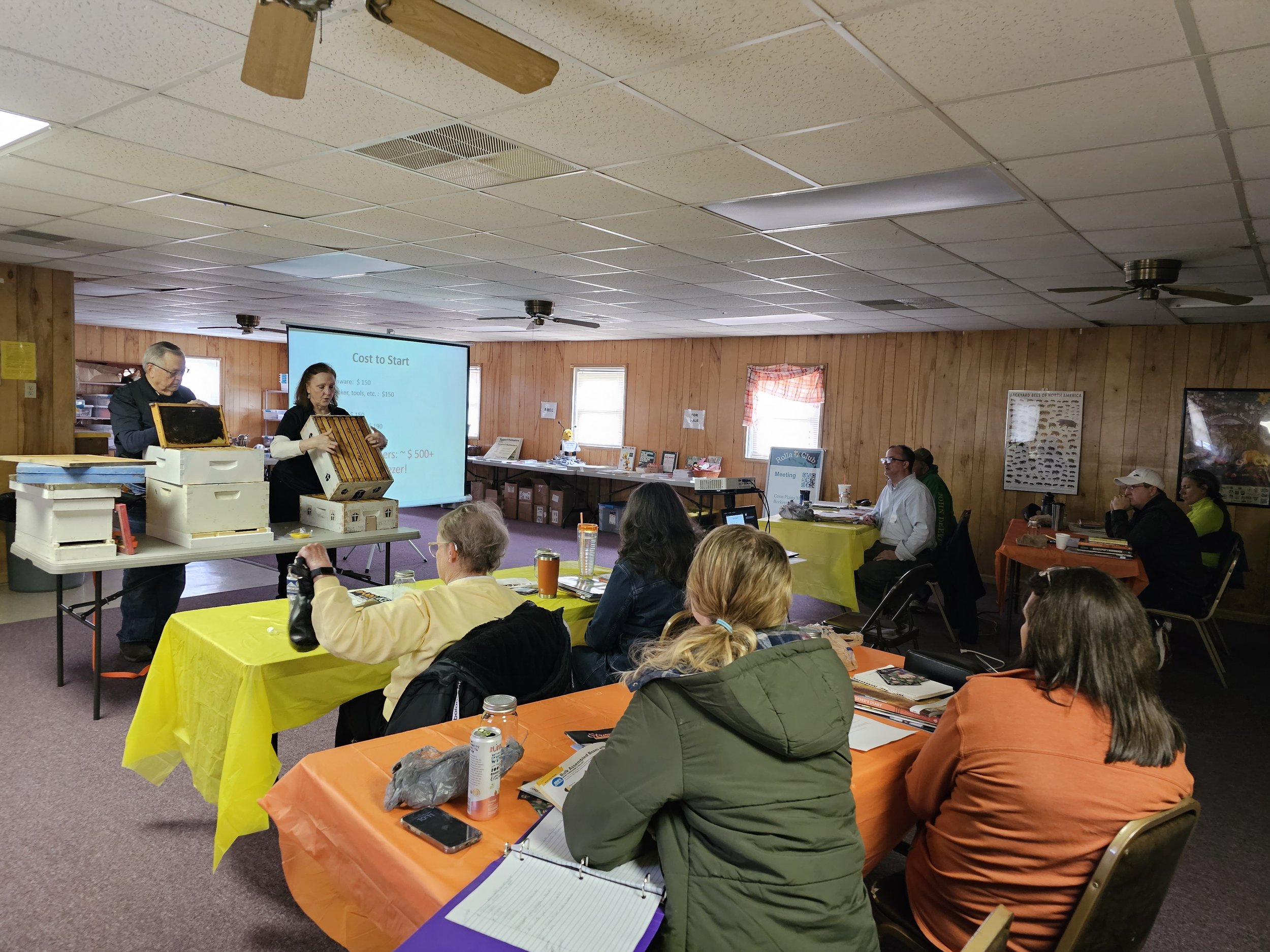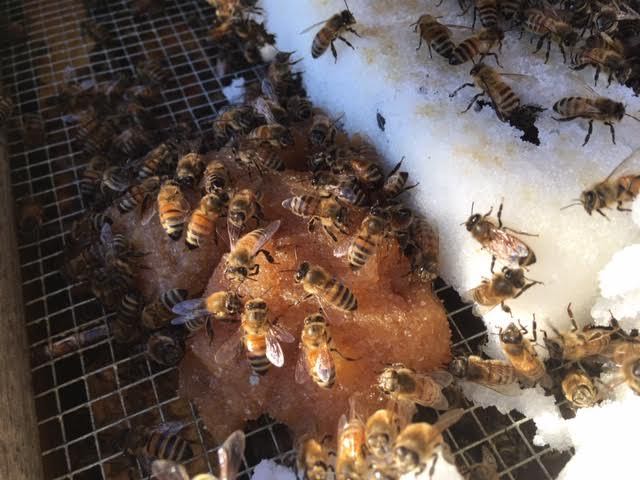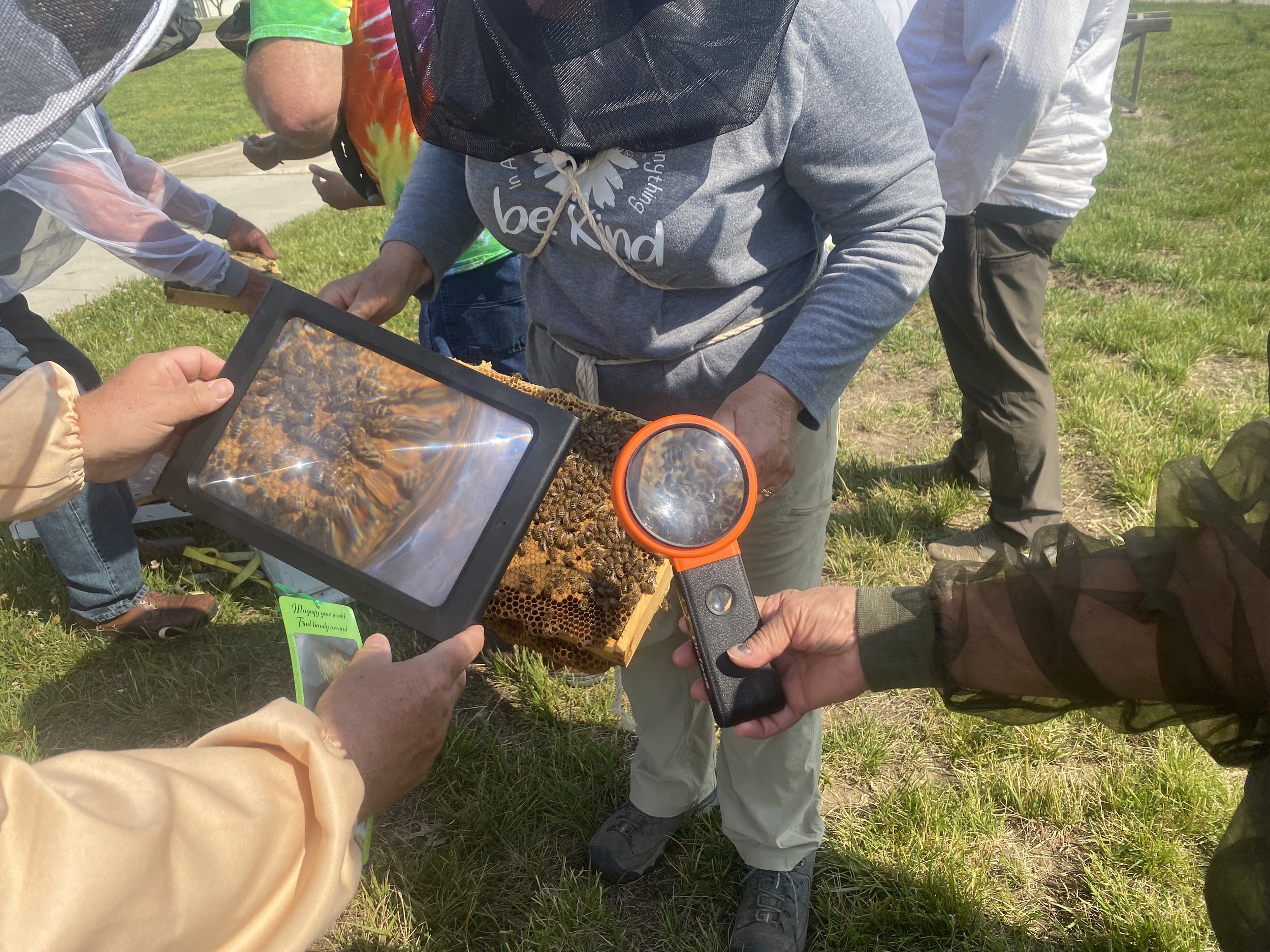Unexpected Hive Visitor
/Can you see the visitor, top of the photo? (Photo by Charlotte Ekker Wiggins)
Unexpected Hive Visitor
When talking to beekeepers, one of the subjects that comes up is who has been visiting the hives. They’re not talking about people; they have tangible signs of visitors in the ground and hive and are trying to determine what creature may have been close by.
For every one of the four seasons, there seems to be at least one apiary visitor.
In summer, the signs of bear are clear. Bears usually tear up hives to steal a frame of honey and take the frame away from the bees.
Other regular visitors are skunks. Those native Missouri mammals will leave claw marks at the hive entrance where they have tried to grab some bees.
Raccoons will also periodically stop by and try to remove lids. I watched a raccoon one day remove an entrance reducer as well.
One summer I was excited to see a tomato red bird in my garden. A friend told me later those were tanangers, also called “bee eaters” because they like to snack on bees.
In winter, possums may find refuge under hives where the heat from the cluster moves through the screened bottom board and leaves the spot under the hive nice and warm.
In spring and summer, lizards take up watch under my hives as garbage disposals. They don’t bother the live bees.
I was ticking through the list of possible hive visitors one night when I spotted some movement near my hives. I don’t have them stacked next to each other any more but this particular evening, the hive neighborhood had an unusual visitor. When I looked at the photos, I identified an armadillo in the apiary.
These non-native visitors have been migrating north from Texas. They like grubs and often dig through soil looking for food.
Here’s a better photo. Most definitely an armadillo! (Photo by Charlotte Ekker Wiggins)
They are migratory, in other words they will move on from a location.
What unexpected visitors have you seen in your apiary?
Charlotte



